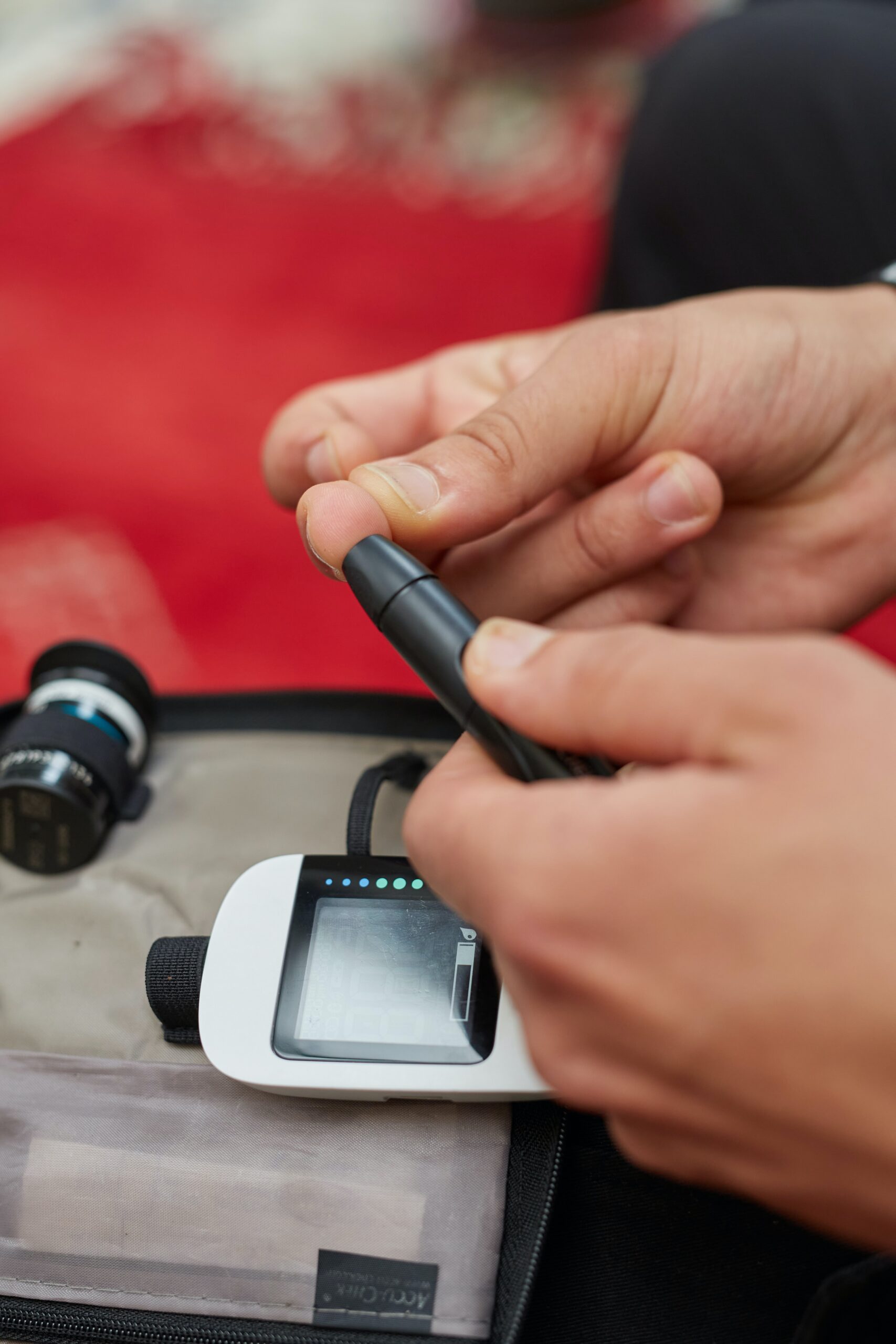UNDERSTANDING CBD: THE BENEFITS FOR SLEEP, ANXIETY AND HEALTH
Recent Posts
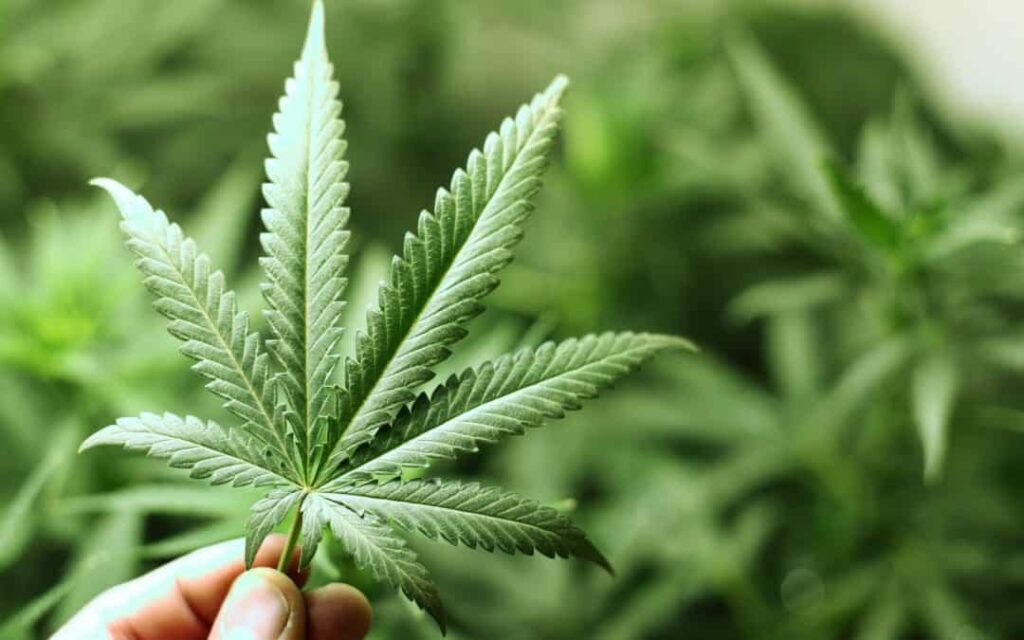
CBD – full name cannabidiol – is a chemical compound that is found in the cannabis plant.
Cannabis has been used medicinally for centuries for a number of different complaints including as a sleep aid, to reduce pain and nausea, to lower anxiety and help with other mood issues.
The cannabis plant contains hundreds of different compounds and many of these have been studied for decades for their therapeutic benefits. In particular, cannabis contains cannabinoids and these have captured the attention of the scientific community.
The first cannabinoid was discovered in the mid-1960s. Since then, scientists have gone on to identify more than 80 individual cannabinoids and they continue to investigate them for their potential health benefits.
The different cannabinoids each have very individual effects within the body, and so have a range of potential uses for health and disease. Cannabinoids are now used in treatment for a broad, and growing, range of conditions and symptoms, from sleep issues to anxiety, pain management, inflammation, Parkinson’s disease and even cancer.
There are two cannabinoids that are most widely recognized for their medicinal value – these are THC and CBD:
THC (tetrahydrocannabinol) is a chemical compound that delivers the “high” that comes from taking marijuana.
CBD, on the other hand, does not have a “high” associated with it. Instead, CBD actually has calming, anti-anxiety and antipsychotic properties.
SO WHAT IS CBD?
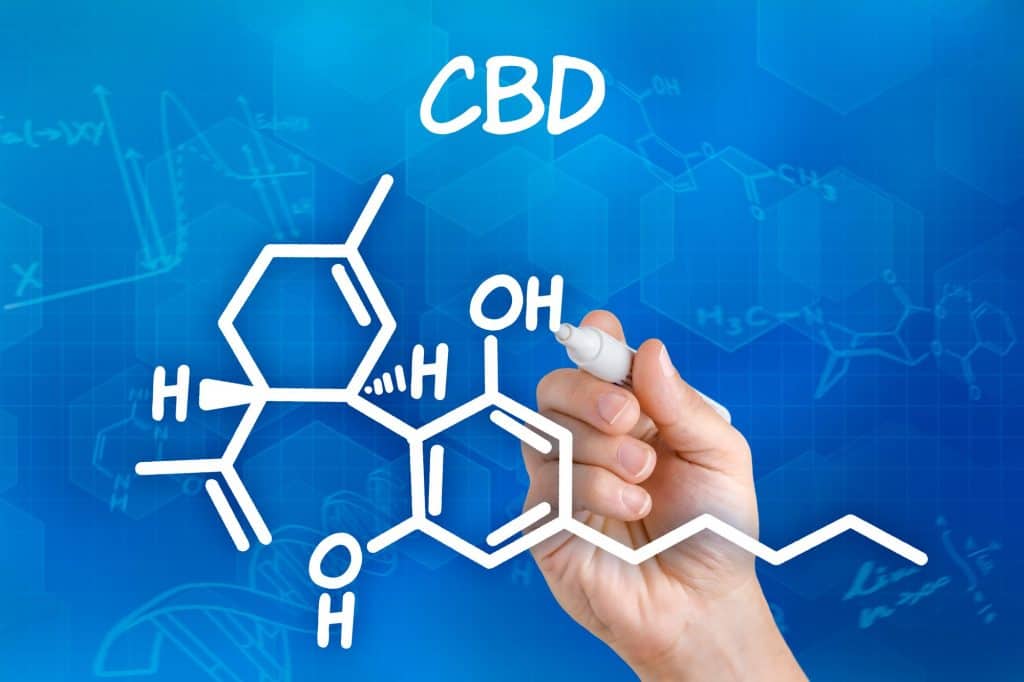
Cannabidiol, or CBD, is a chemical compound that’s found in the cannabis plant. There are multiple species of cannabis that naturally contain CBD.A lot of confusion exists around the difference between hemp and cannabis.
Essentially, ‘hemp’ is used to refer to the non-psychoactive variety, and ‘cannabis’ to the psychoactive variety.
Hemp fields are simply fields of cannabis plants that grow under conditions where the male plant varieties are allowed to fertilise the female plant varieties. In these fields, the male and female plants are grown together.
When females are allowed to be pollinated, they produce very low levels of THC (the psychoactive component).
Along with THC, CBD is the most well researched of the cannabinoids.CBD can be extracted from the hemp plant and produced synthetically. You can find CBD in the form of pills, sprays, tinctures, and inhalers and also vapes.
HOW DOES CBD AFFECT US?
Scientists have made a lot of progress in understanding how CBD produces its calming, pain-reducing and anti-inflammatory effects in the body—but there is still a lot to learn. We know that CBD interacts with a number of different receptors, proteins, and other chemicals in the brain. These interactions alter the activity of neurotransmitters, hormones, and other cells throughout the brain and body. What’s interesting is that through these interactions, CBD seems to be able to affect many of the body’s functions, including sleep-wake cycles, perception of pain, emotional balance, inflammation and seizures.Our bodies produce their own cannabinoids, as part of its endocannabinoid system. This system is involved in regulating many processes, including cognitive function, appetite, mood and pain perception. When we take CBD, it interacts with the body’s endocannabinoid system and its receptors.
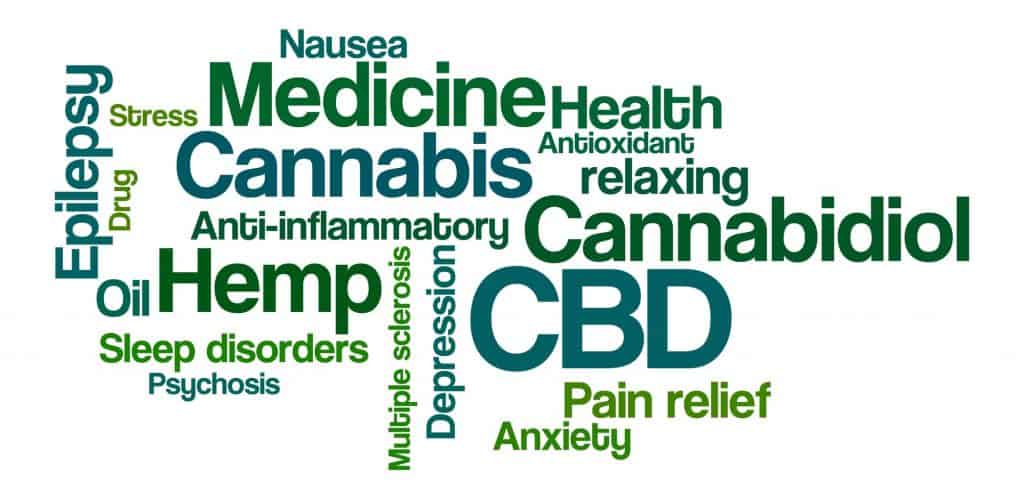
There is a large amount of scientific research currently going into CBD and we’re continually learning more about the broad spectrum of benefits it may offer to health. New research suggests that CBD may play a role in the growth of new brain cells, a process known as neurogenesis. It is also widely accepted as having antioxidant properties and anti-inflammatory benefits. As a result, it looks promising as a treatment for a wide range of conditions from depression to other neurological disorders and autoimmune diseases.
CBD FOR PAIN RELIEF
CBD is already used quite a bit for pain management as it works as an analgesic. In proper doses, CBD gives nearly the same pain reduction as opioid drugs such as morphine. And if you look back over the last 6000 years, CBD hasn’t killed anyone via an overdose which is pretty impressive especially when you compare it to other pain relieving options such as NSAIDs like ibuprofen and aspirin which can wreak havoc on the lining of your gut, liver and kidneys. Aspirin kills over 1,000 people every year. CBD has been used in pain relief for a very long time, including by royals. Queen Victoria’s physician apparently prescribed medicinal cannabis for the Queen’s menopausal cramps.In terms of pain management, the body’s own endocannabinoid system is involved in managing our perception of pain. And taking CBD has been shown to help in the treatment of chronic pain and pain disorders that can be difficult to treat such as migraines, arthritis and multiple sclerosis.
CBD FOR SLEEP
CBD can help to improve sleep quality and also reduce sleep difficulties as it has the ability to reduce anxiety levels.How does it do this? It seems to protect against excess stress by reducing susceptibility from stress induced activation in the HPA axis (the hypothalmus-pituitary-adrenal axis). It has also been shown to reduce blood levels of cortisol. As little as 10mg of CBD can help with lowering anxiety. It has also been shown to reduce insomnia in individuals who suffer from chronic pain and also help to increase the amount of sleep.In smaller doses, CBD can actually stimulate alertness and reduces daytime sleepiness and this can be really helpful in improving daytime performance and helping to strengthen your circadian rhythm by supporting the consistency of your sleep-wake cycle. Small doses of CBD can help to give you a calm yet relaxed focus similar to the effects of L-Theanine (which is an amino acid you find in green tea and often used by monks to enhance meditation).If you combine smaller doses of CBD with other natural sleep inducing compounds such as magnesium, lemon balm or if you’re outside of the UK, melatonin, you can get yourself into an even more relaxed state for sleep.
CBD USE IN NEUROLOGICAL DISORDERS
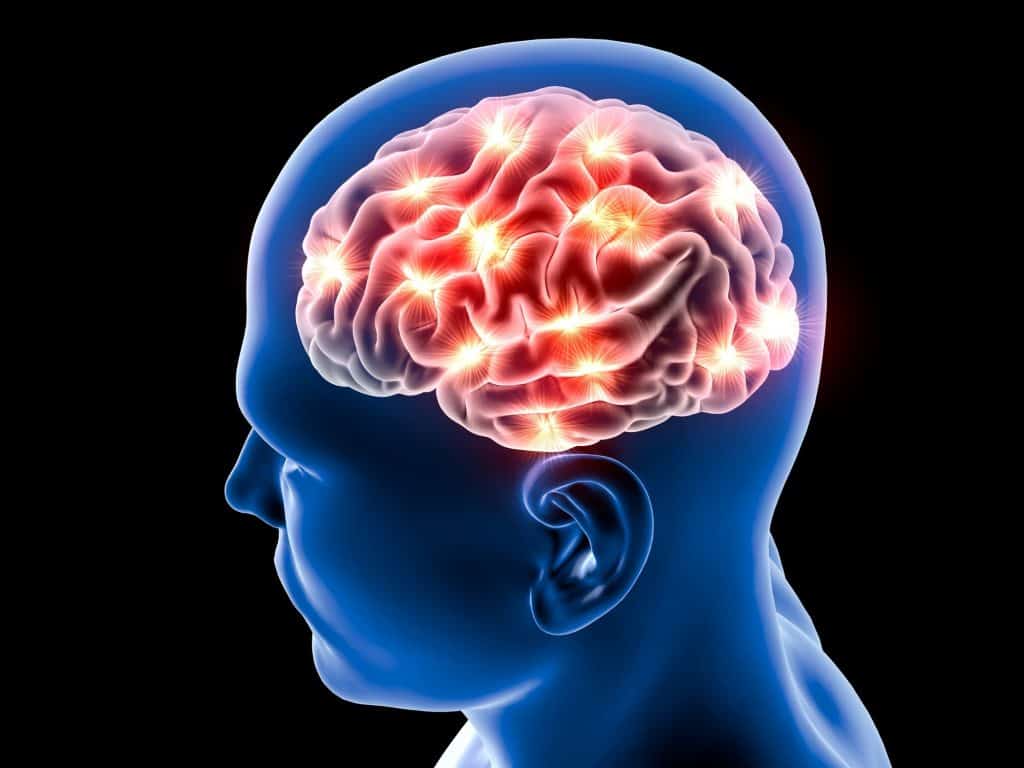
CBD also has some promising results in individuals with Parkinson’s who have REM behaviour disorder. REM behaviour disorder is a condition that causes people to act out physically during dreaming and REM sleep. Usually, during REM, the body is largely paralyzed to keep you from reacting physically to your dreams and acting them out. In REM behaviour disorder, this paralysis doesn’t occur which can lead to disruptive sleep and people injuring themselves or their sleeping partners. It also seems promising for helping with symptoms of depression and anxiety.Cannabis has been used for centuries to treat nerves and anxiety and other mood problems. CBD interacts, in part, with serotonin receptors in the brain and research shows that it can reduce both mental and physical symptoms of anxiety. This includes social anxiety – one study showed positive effects of CBD in helping to calm nerves in individuals before public speaking.One area that is showing a lot of promise for CBD is in its use to contribute to protecting the brain and this seems to be down to its antioxidant and anti-inflammatory abilities. Scientists are also investigating its role in neurogenesis – the formation of neurons and also its ability to help the brain heal from injury.Some research suggests that CBD may help to reduce brain damage incurred neurological injuries and strokes CBD is increasingly being looked at as a possible therapy for a range of neurodegenerative diseases, such as Parkinson’s, Alzheimer’s, and multiple sclerosis and also in treatment for certain cancers.
CBD FOR BODY COMPOSITION
Another benefit of CBD is its effects on lowering insulin levels and lowering appetite which is pretty handy if you are looking to lose weight. This fact combined with the way it decreases cortisol levels can have a pretty profound effect on your body fat levels. Some studies show that CBD can boost metabolism , reduce levels of fat in the liver and lower blood cholesterol.
COULD CBD BE RIGHT FOR YOU?
If you are thinking of taking CBD, there are a couple of things to think about. Firstly, always consult your doctor before you begin taking a supplement or make any changes to your existing medication and supplement routine. While CBD is generally well tolerated by healthy adults, there are some possible side effects that include dry mouth, lightheadedness, sleepiness, sluggishness in movement and/or thought (psychomotor slowing), and low blood pressure.Always consult your doctor first, especially if you are on medication and it is not recommended for women that are pregnant or breastfeeding.Certain herbs and supplements may also interact with CBD and increase sleepiness or drowsiness. These are things such as:• Calamus• California poppy• Catnip• Hops• L-tryptophan and 5-HTP• Melatonin• SAMe• St. John’s wort• ValerianIf you are thinking of taking CBD, you want to make sure that you are taking a quality CBD supplement. CBD, is a cannabinoid found in the stalks and leaves of the hemp plant. However, what is commonly sold is Hemp seed oil and this does not contain CBD.In taking CBD, you should first make sure the product contains the advertised levels of CBD. It’s usually listed as milligrams per gram. Next, you will want to determine whether it’s full spectrum CBD oil, broad spectrum CBD, or CBD isolate.
FULL SPECTRUM, BROAD SPECTRUM AND ISOLATE – WHAT ARE THE DIFFERENCES?
Essentially, full spectrum CBD is the only kind that includes THC, the psychoactive compound in cannabis. But hemp doesn’t contain enough THC to get you high. In fact, to be legally classified as a hemp product, it must contain less than 0.3 percent THC.(If a hemp farmer’s crop tests higher than 0.3 percent THC, this crop is classified as “hot hemp,” and it cannot legally be sold as hemp.)Broad spectrum CBD contains other cannabinoids without THC. Unlike full spectrum CBD oil, broad spectrum is officially allowed on websites such as Amazon.
IS FULL SPECTRUM CBD BETTER?
Most experts recommend using full spectrum CBD oil. But, if you are an athlete, for example or you need to pass a drug test anytime soon, you may prefer CBD isolate. Isolate is where the CBD has been “isolated” from all other cannabinoids — including THC. But it’s worth being careful as experts warn that some CBD isolate may retain traces of THC.
SO PUTTING ASIDE DRUG TESTS, WHY WOULD YOU WANT TO TAKE FULL SPECTRUM CBD OIL?
This is because of what Scientists refer to as “the entourage effect.” This principle suggests that cannabinoids like CBD work best in combination with other cannabinoids (like THC, CBN, and CBG) and so for maximum efficacy — so long as you don’t live with the threat of random drug testing — you’ll probably want to look for full-spectrum hemp oil.Full spectrum hemp extract contains other compounds, aside from cannabinoids, called terpenes. Terpenes are the molecules that give it the flavor and aroma. They’re also found in pine trees and citrus fruitsSome research suggests that terpenes play a role in how CBD affects us and that they might be key to the entourage effect.Some CBD producers test for terpenes, along with cannabinoids and residual solvents. But most companies do not.Ultimately whether or not you decide to try CBD is a decision for you. The form you take it depends on personal choice – some people don’t like the taste of hemp oil and so prefer it in capsule form or an intranasal variety. Always check with a medical doctor first.
Share Article
Subscribe to receive the latest health tips
Get my latest health, fitness, biohacking, anti-aging tips, and podcast episodes delivered straight to your inbox.
Recent Podcasts

EP 343 – The World’s Fastest Growing Fitness Coach: How to Boost Total Calorie Burn for 48 Hours in Just 10 Minutes a Day, Get Lean (Not Bulky) & Look and Feel Your Best with Vince Sant
Angela presents a biohack alongside Dr Jacey Folkers, in which they discuss the importance of strategically dosing carbohydrates before a workout for optimal performance. They delve into the impact of insulin resistance on blood glucose control, and hormone balance, particularly in women, and how certain peptides and supplements can help improve insulin sensitivity and hormonal health.

EP 342 – Bitesize Biohack: Is Sunscreen Safe? The Effect of Diet On Sun Damage & The Little Known Collagen Destroyer in Your Home with Dr Rachel Varga
Angela presents a biohack alongside Dr Jacey Folkers, in which they discuss the importance of strategically dosing carbohydrates before a workout for optimal performance. They delve into the impact of insulin resistance on blood glucose control, and hormone balance, particularly in women, and how certain peptides and supplements can help improve insulin sensitivity and hormonal health.
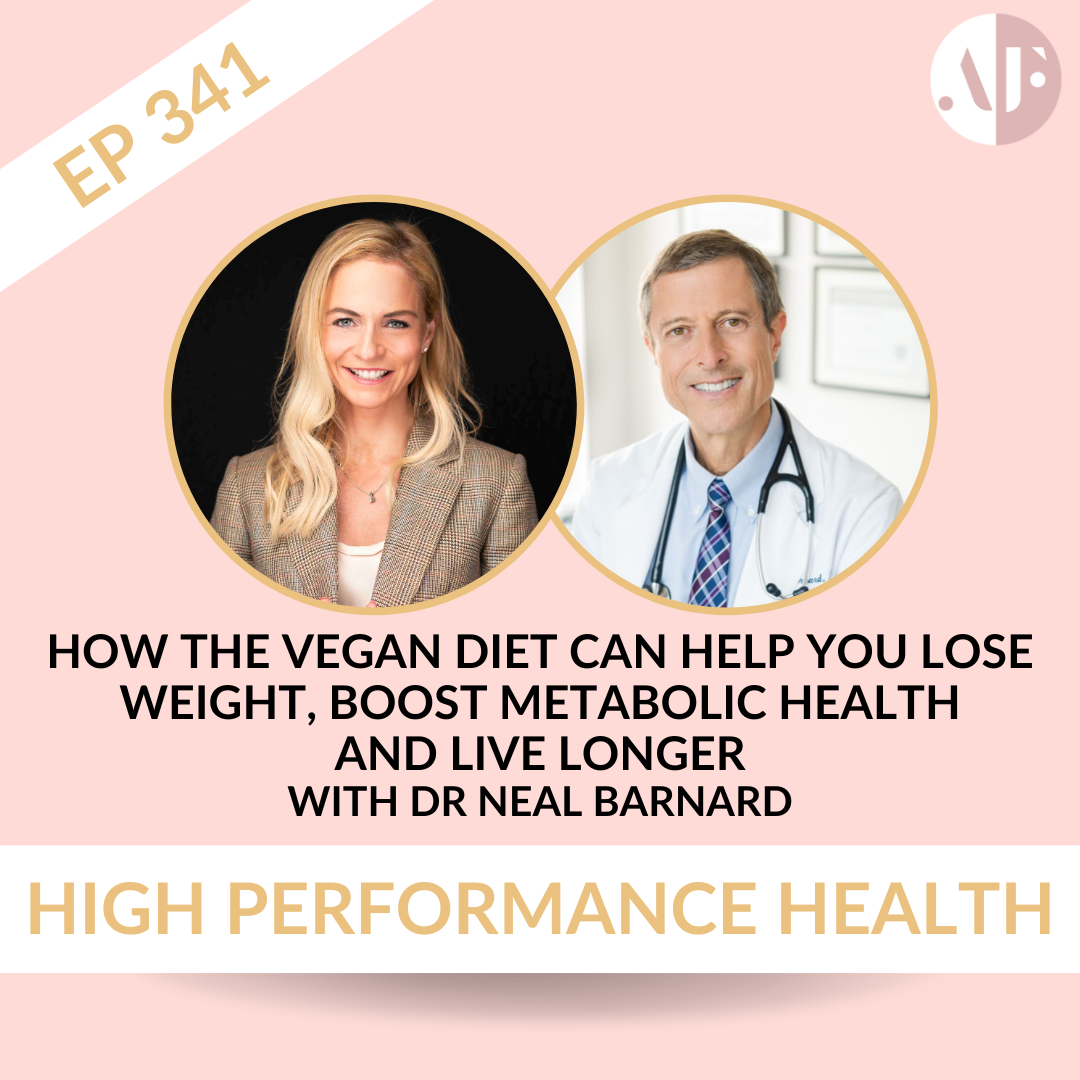
EP 341 – How the Vegan Diet Can Help You Lose Weight, Boost Metabolic Health and Live Longer with Dr Neal Barnard
Angela presents a biohack alongside Dr Jacey Folkers, in which they discuss the importance of strategically dosing carbohydrates before a workout for optimal performance. They delve into the impact of insulin resistance on blood glucose control, and hormone balance, particularly in women, and how certain peptides and supplements can help improve insulin sensitivity and hormonal health.
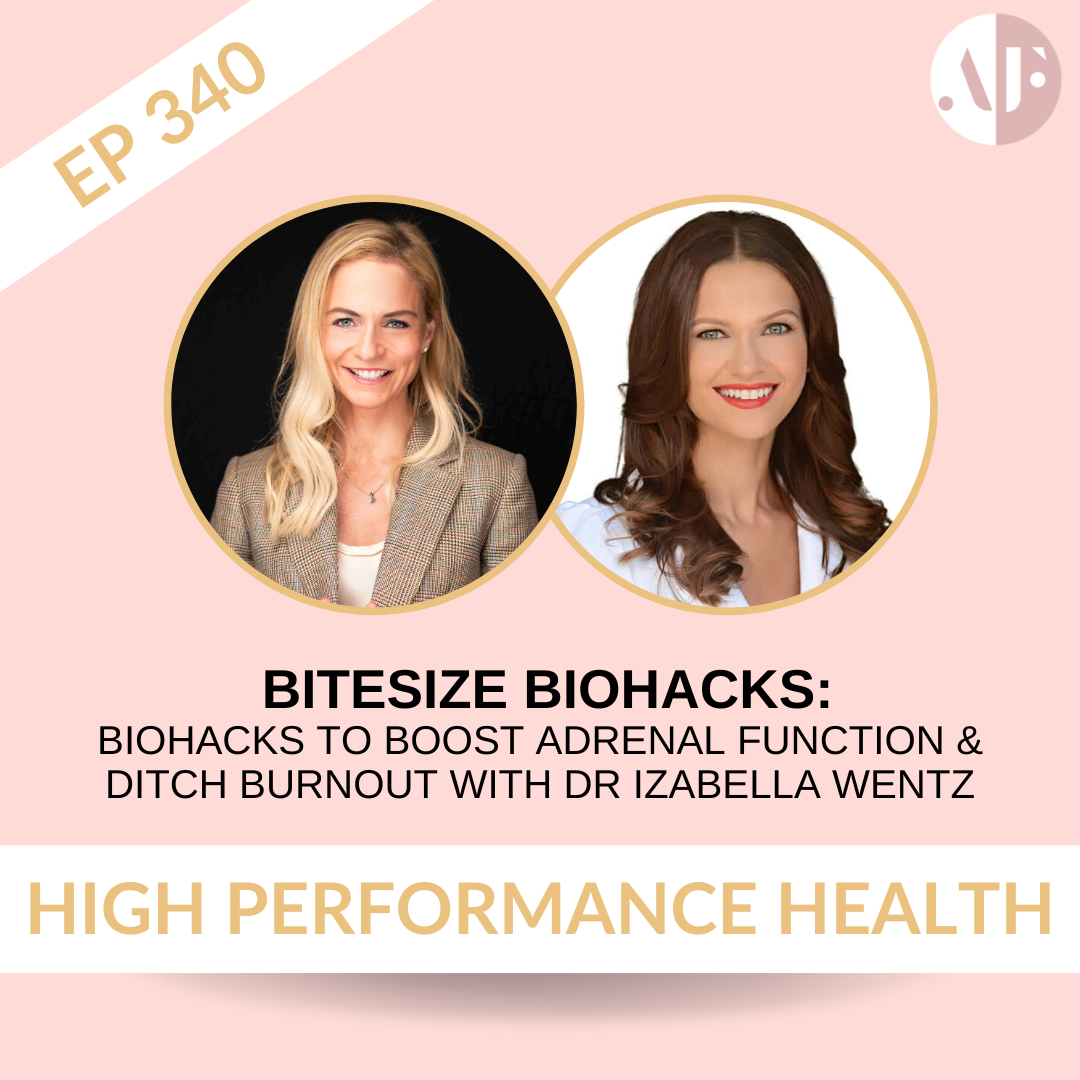
EP 340 – Bitesize Biohacks: Biohacks to Boost Adrenal Function & Ditch Burnout with Dr Izabella Wentz
Angela presents a biohack alongside Dr Jacey Folkers, in which they discuss the importance of strategically dosing carbohydrates before a workout for optimal performance. They delve into the impact of insulin resistance on blood glucose control, and hormone balance, particularly in women, and how certain peptides and supplements can help improve insulin sensitivity and hormonal health.

